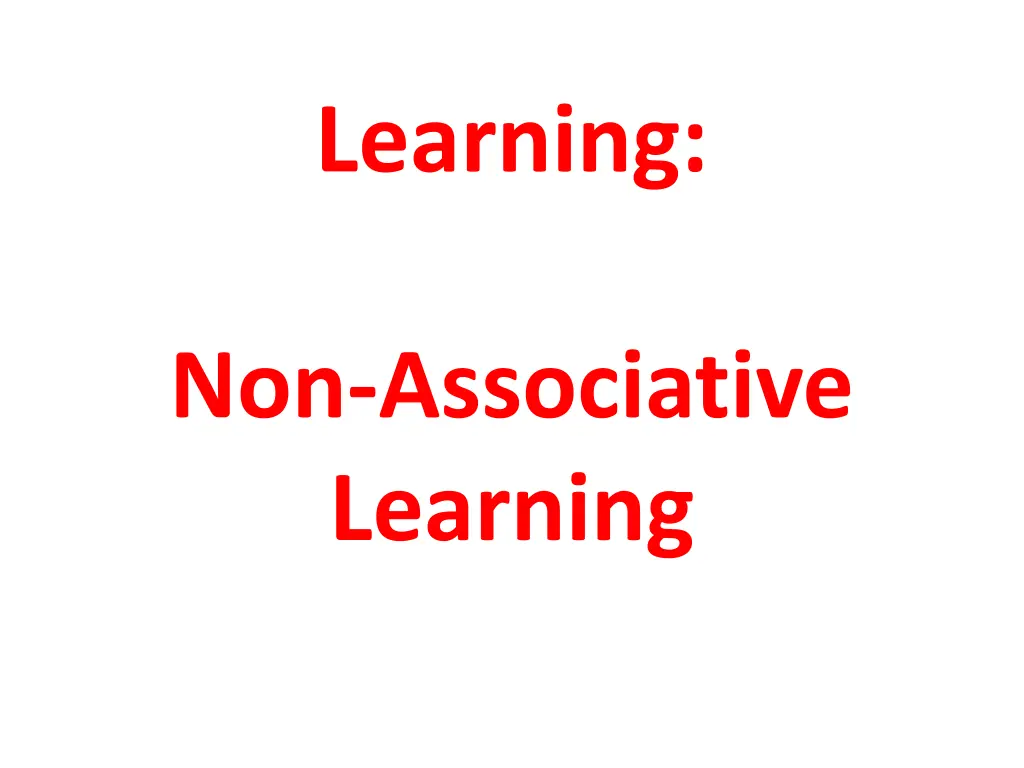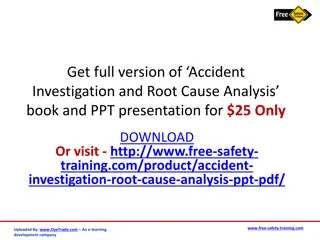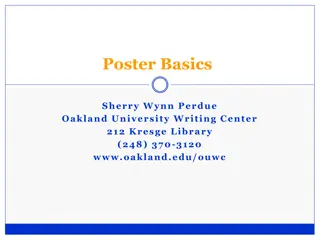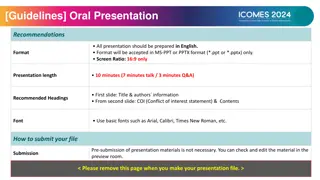
Understanding Non-Associative Learning: Habituation and Sensitization
Explore the concepts of non-associative learning through habituation and sensitization, which involve changes in response to stimuli over time. Discover why these processes are crucial in shaping behavior and adaptation in organisms.
Download Presentation

Please find below an Image/Link to download the presentation.
The content on the website is provided AS IS for your information and personal use only. It may not be sold, licensed, or shared on other websites without obtaining consent from the author. If you encounter any issues during the download, it is possible that the publisher has removed the file from their server.
You are allowed to download the files provided on this website for personal or commercial use, subject to the condition that they are used lawfully. All files are the property of their respective owners.
The content on the website is provided AS IS for your information and personal use only. It may not be sold, licensed, or shared on other websites without obtaining consent from the author.
E N D
Presentation Transcript
Learning: Non-Associative Learning
Learning Learning A relatively permanent change in performance potential, caused by certain kinds of experiences.
Learning Critical Thinking Question Why does the definition above stress performance potential, rather than simply performance? Critical Thinking Question Would you consider dark-adaptation, which occurs when you sit in a dark movie theater, to be a form of learning? Why or Why Not?
Learning Learning is not directly observed by the senses, but instead must be inferred from the behavior of organisms. We wouldn t say, Draw me a picture (or play me the sound) of learning . Note: Gravity is also inferred rather than directly observed by the senses. We can test falsifiable theories of gravity by experiments on the behavior or objects. We can test falsifiable theories of learning by experiments on the behavior or organisms.
http://en.wikipedia.org/wiki/Learning#Non-associative_learninghttp://en.wikipedia.org/wiki/Learning#Non-associative_learning Non-Associative Learning Non-Associative Learning a relatively permanent change in the strength of the response to a single stimulus caused by repeated exposure to that stimulus. Changes due to such factors as sensory adaptation, fatigue, or injury do not qualify as non-associative learning. Examples: Habituation (Desensitization) Sensitization
Habituation Habituation - a form of (non-associative) learning in which an organism decreases or ceases to respond to a stimulus after repeated presentations . http://en.wikipedia.org/wiki/Habituation Also called desensitization Habituation and desensitization are distinct from sensory adaptation, which is a temporarily reduced ability to detect stimuli. Potential Pop Quiz Question Provide a your own novel example of habituation from everyday life. Explain your choice.
http://commons.wikimedia.org/wiki/File:Kabul_City_Traffic.jpghttp://commons.wikimedia.org/wiki/File:Kabul_City_Traffic.jpg Habituation Potential Pop Quiz Question In your own words, explain why habituation might be evolutionarily adaptive.
http://en.wikipedia.org/wiki/Sensitisation Sensitization Sensitization a non-associative learning process in which repeated administrations of a stimulus result in the progressive amplification of a response . Example: Fast-food workers become sensitized to the call for Large Fry , amidst the buzz of task-irrelevant auditory stimulation.
Sensitization http://en.wikipedia.org/wiki/File:Eric_Kandel_World_Economic_Forum_2013.jpg http://en.wikipedia.org/wiki/File:Aplysia_californica.jpg Eric Kandel (Columbia University) earned a Nobel Prize (2000) for research on the physiological basis of sensitization (and memory), in Aplysia Californica ( Sea Slugs ).






















